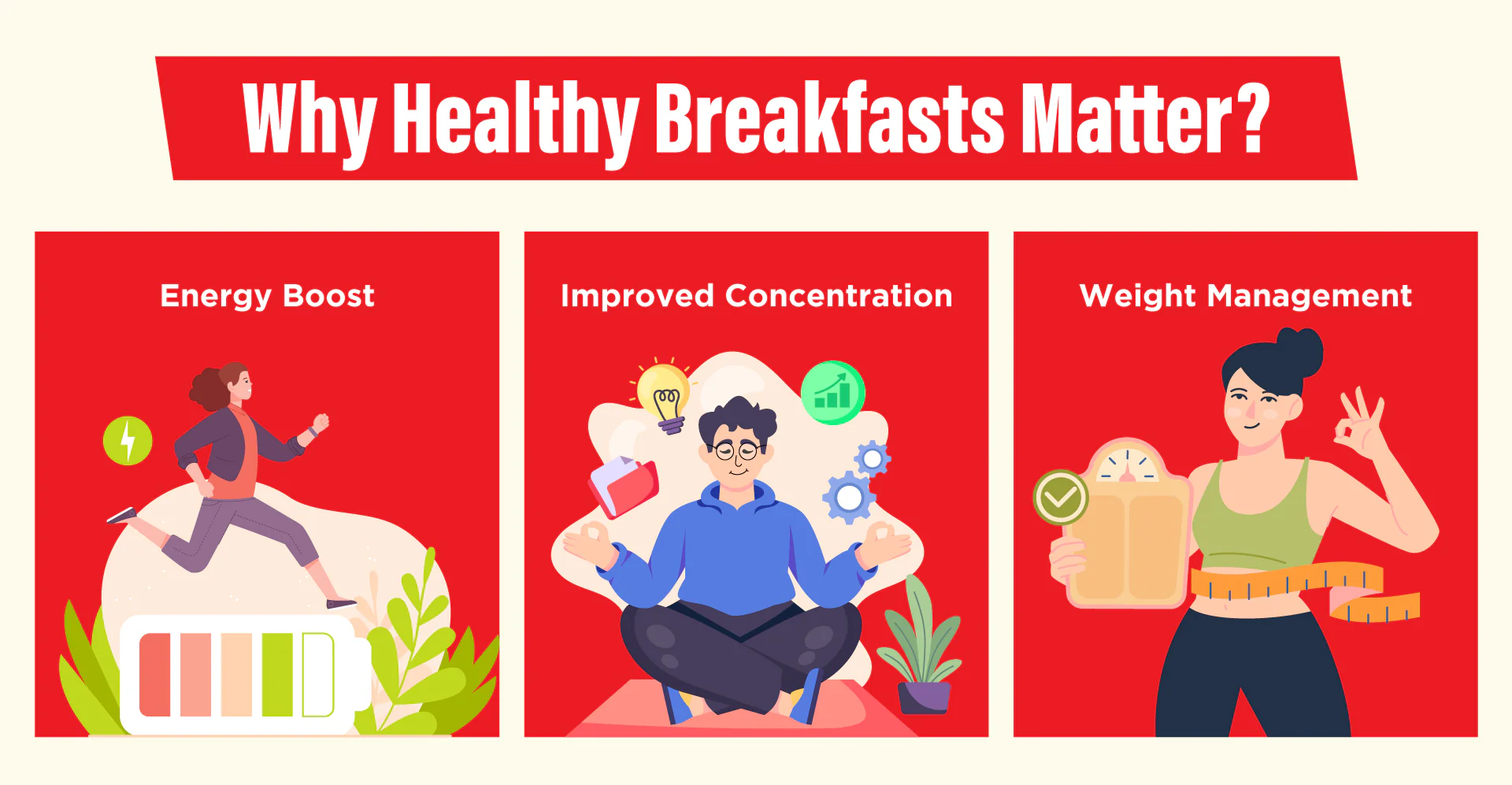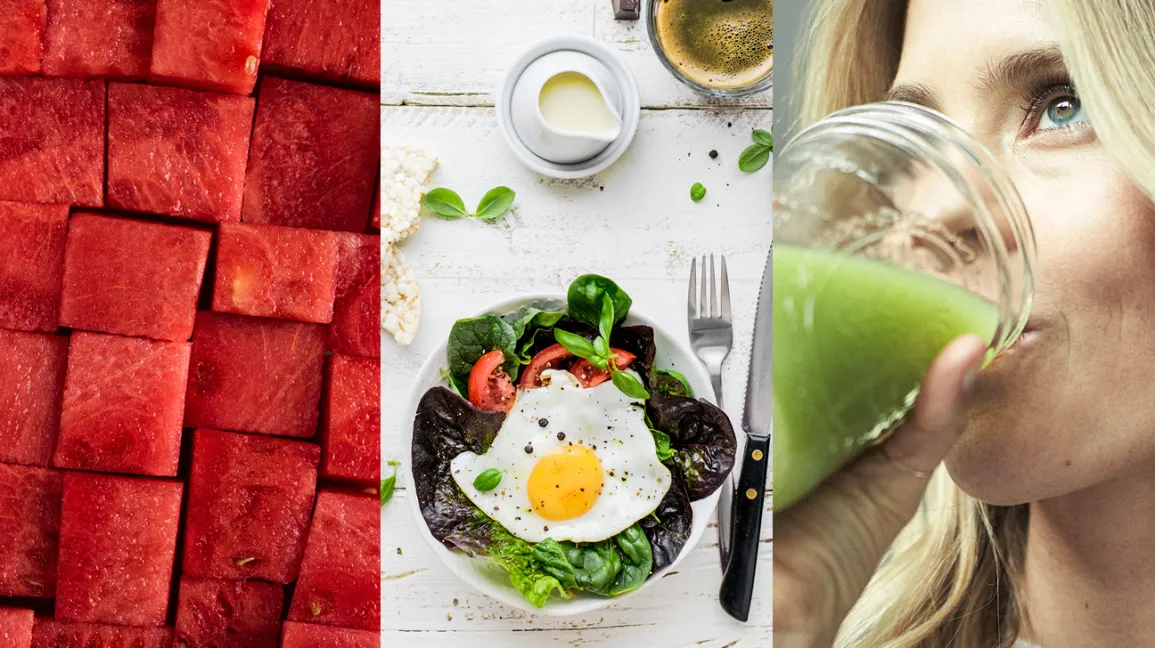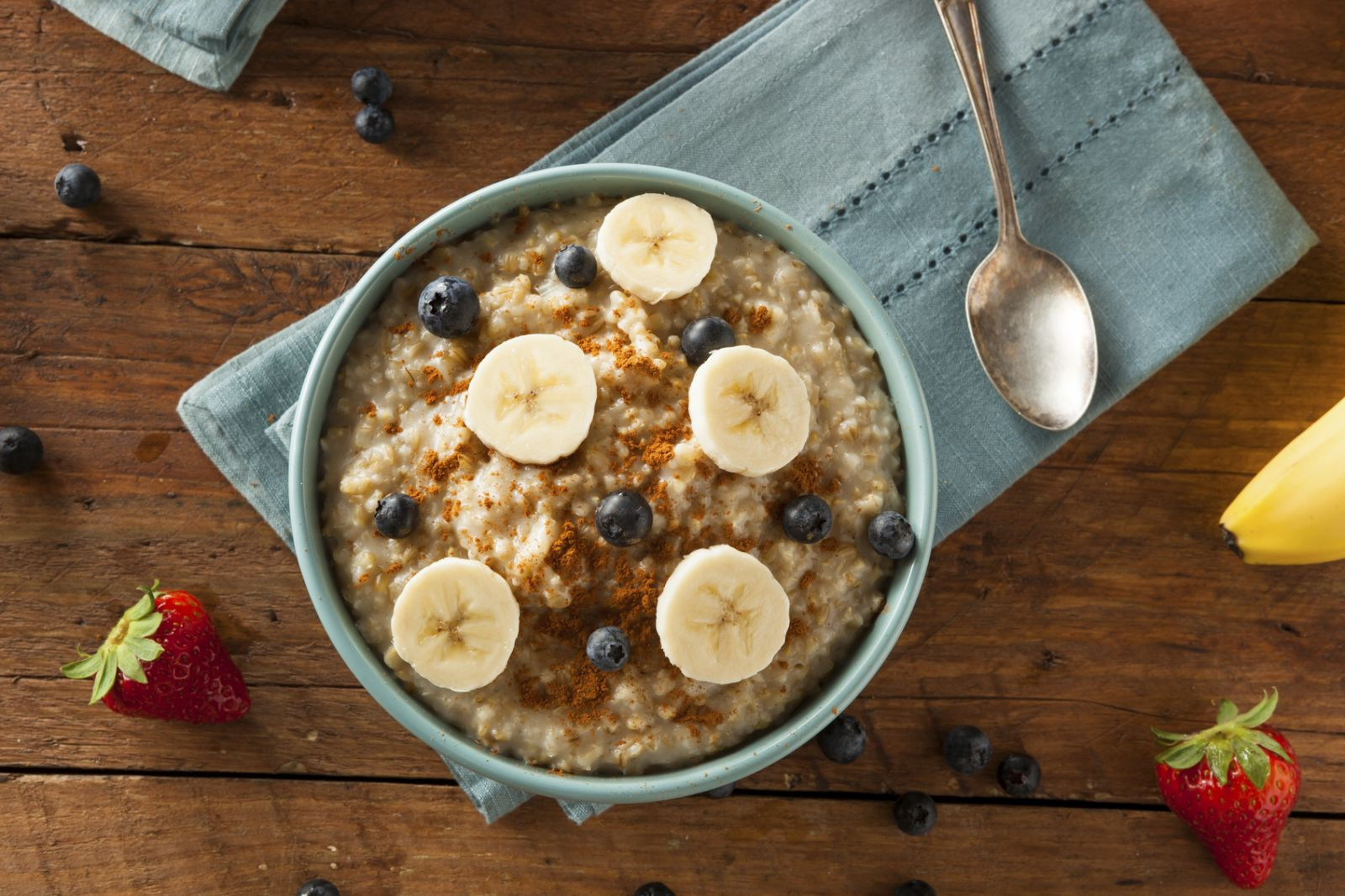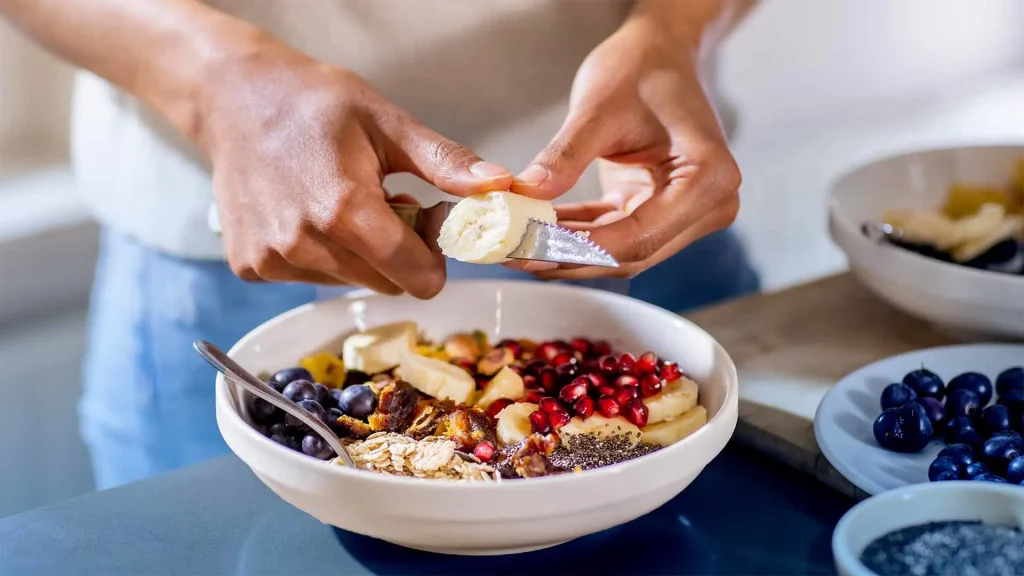Why Breakfast Matters for Energy Levels
After a night of rest, your body has been fasting for several hours. Breakfast is your opportunity to break that fast and replenish your energy stores. Eating in the morning helps jumpstart your metabolism—the process your body uses to convert food into energy. This steady rise in energy is especially valuable if you’re working on how to motivate yourself to workout in the morning, because a properly fueled body feels more alert, more capable, and less weighed down by early-day fatigue.
A well-balanced breakfast also works in harmony with your body’s natural hormonal cycles. It helps stabilize your blood sugar and supports your body’s cortisol awakening response (CAR), the natural rise in cortisol that helps you feel awake and alert in the morning.

The Science of Energy from Food
At its core, energy from food comes from three macronutrients: carbohydrates, proteins, and fats. Your body breaks these down into smaller molecules to create ATP (adenosine triphosphate), the primary energy currency of your cells.
- Carbohydrates are the body’s preferred source of quick energy.
- Protein and fats are digested more slowly, providing a more sustained energy release.
- Fiber slows down digestion, preventing the rapid spikes and crashes in blood sugar that can leave you feeling drained.
This is why a breakfast of just a sugary donut leaves you crashing an hour later, while one with whole grains, protein, and fat keeps you going.
Complex vs. Simple Carbohydrates
Think of simple and complex carbs as the difference between kindling and a slow-burning log.
- Simple carbohydrates (like those in sugary cereals, pastries, and white bread) burn fast. They cause a rapid spike in blood sugar, followed by a sharp crash that leaves you feeling tired and foggy.
- Complex carbohydrates (found in oats, whole grains, and sweet potatoes) are digested slowly. They provide a steady, reliable stream of energy, like a log that burns for hours. Choosing complex carbs is a cornerstone of building a breakfast for sustained fuel.
The Essential Nutrients for Morning Energy
To build the ultimate energy-boosting breakfast, you need a synergistic team of nutrients. Aim to include each of these four components in your morning meal.
- Protein: Essential for satiety and muscle repair. A goal of 25-35 grams of protein at breakfast can help control appetite and maintain steady energy levels.
- Complex Carbohydrates: Your body’s primary fuel source for sustained energy.
- Healthy Fats: These slow down digestion, promoting fullness and providing a long-lasting energy source.
- Fiber: Crucial for regulating blood sugar and ensuring a slow, steady release of energy.

Top 14 Best Breakfast Foods for Energy
These foods are backed by nutritional science and are fantastic building blocks for a powerful morning meal. Mix and match them to create breakfasts you love.
Oatmeal and Whole Grain Oats
Oatmeal is an energy powerhouse. It’s packed with complex carbohydrates and a special type of soluble fiber called beta-glucan, which helps slow down digestion and provides lasting energy. Oats are also a great source of B vitamins, which are crucial for converting food into fuel. Opt for steel-cut or rolled oats over sugary instant varieties.
Eggs
A classic for a reason. Eggs are a complete protein source, offering about 6 grams of high-quality protein each. This protein, combined with healthy fats, promotes satiety and prevents mid-morning cravings. They are also rich in B vitamins like riboflavin, which is essential for energy metabolism.
Greek Yogurt
Thick, creamy, and loaded with protein, Greek yogurt provides more protein than its regular counterpart. This keeps you full and provides a steady source of energy. Choose plain varieties to avoid added sugars and top it with berries and nuts. The probiotics in yogurt also support a healthy gut, which is foundational to overall wellness and how well you absorb nutrients.
Nuts and Nut Butters
Almonds, walnuts, and their butters are excellent sources of protein, healthy fats, and fiber. They are also rich in magnesium, a mineral vital for energy production. A spoonful of almond butter on whole-grain toast or in a smoothie adds staying power to your breakfast.
Berries
Blueberries, strawberries, and raspberries are low in sugar but high in fiber and antioxidants. These antioxidants can help reduce inflammation and combat fatigue. The natural sugars in berries offer a quick but stable energy boost, making them a perfect addition to yogurt or oatmeal. The vibrant colors of berries can also be a simple way to improve your mood, and learning about which food can improve mood is a great step toward holistic wellness.
Avocado
Avocados are packed with monounsaturated healthy fats that digest slowly, providing a reliable stream of energy. They are also a great source of fiber and B vitamins. Smashed on whole-grain toast and topped with an egg, avocado provides a perfectly balanced and energizing start to the day.
Chia Seeds
These tiny seeds are nutritional giants. They are rich in omega-3 fatty acids, protein, and fiber. Chia seeds absorb liquid and expand, which helps you feel full and promotes a slow release of nutrients for sustained energy. Try making an overnight chia pudding for a grab-and-go option.
Flaxseed
Similar to chia seeds, flaxseed is a great source of omega-3s and fiber. To unlock their full nutritional benefits, they must be ground. Stir a tablespoon of ground flaxseed into your oatmeal, smoothie, or yogurt for an easy energy and nutrient boost.
Whole Grain Bread and Toast
When choosing bread, always opt for 100% whole grain. It provides the complex carbs and fiber needed for slow energy release, unlike refined white bread which can lead to energy crashes. Top it with avocado, nut butter, or eggs for a complete meal.
Cottage Cheese
Don’t overlook this high-protein classic. A single cup of cottage cheese can pack around 24 grams of protein, making it incredibly satiating. It pairs well with both sweet (berries, peaches) and savory (tomatoes, black pepper) toppings.
Bananas
Bananas are nature’s energy bar. They contain natural sugars for a quick boost, but their fiber content helps moderate the blood sugar response. They are also an excellent source of potassium and vitamin B6, which support energy metabolism.
Sweet Potatoes
This versatile root vegetable is a fantastic source of complex carbohydrates, fiber, and beta-carotene. A breakfast hash with roasted sweet potatoes, eggs, and black beans provides long-lasting fullness and a steady supply of fuel.
Coconut
The healthy fats in coconut, particularly medium-chain triglycerides (MCTs), are unique because they are more readily used for energy than other fats. Add unsweetened coconut flakes to your yogurt or use coconut milk as the base for a smoothie.
Papaya
This tropical fruit contains natural sugars for immediate energy, along with antioxidants and vitamin C to fight fatigue. Papaya also contains an enzyme called papain, which can aid in digestion, helping your body process your breakfast more efficiently.
What Foods to Avoid for a High-Energy Morning?
To maintain stable energy, it’s just as important to know what to avoid. Steer clear of foods high in simple sugars and refined carbohydrates, which are notorious for causing an energy crash. These include:
- Sugary breakfast cereals
- Pastries, donuts, and muffins
- White bread, bagels, and croissants
- Sweetened yogurts and juices
- Many processed breakfast bars
These foods can be a source of stress on your body’s systems. Limiting food that cause stress is key for long-term energy and well-being. This foundation of stable energy is also central to many healthy aging tips, as maintaining consistent metabolic balance over the years supports resilience, vitality, and clearer daily functioning.

Meal Timing and Portion Considerations
When you eat can be as important as what you eat. Try to have your breakfast within one to two hours of waking up to support your body’s natural energy patterns.
Portion size also matters. A meal that is too large can leave you feeling sluggish and sleepy, while one that is too small won’t provide enough fuel. Pay attention to your body’s hunger and fullness cues—a practice central to mindful eating. Learning more about mindful eating can transform your relationship with food and energy.
Building Your Perfect Energy Breakfast
Creating a balanced, energizing breakfast is simple when you use a template. Just pick one item from each category:
- A Protein Source: Eggs, Greek Yogurt, Cottage Cheese, Protein Powder
- A Complex Carb: Oats, Whole Grain Bread, Sweet Potato, Quinoa
- A Healthy Fat: Avocado, Nuts, Seeds, Nut Butter
- A Fiber & Nutrient Boost: Berries, Spinach, Chia Seeds, Flaxseed
This framework allows you to personalize your breakfast based on your preferences while ensuring you get the sustained energy you need to conquer your day.
A nourishing breakfast sets the tone for your entire day—fueling focus, mood, and lasting energy. By choosing whole, balanced foods and listening to your body’s natural rhythm, you build a foundation for sustained vitality and well-being. For more science-backed nutrition tips and mindful living insights, visit Not One Type and continue your journey toward everyday wellness.


Có thể bạn quan tâm
Healthy Eating on the Go: Simple Strategies for Busy Lifestyles
Maintaining nutritious eating habits while managing a hectic schedule can feel overwhelming, but healthy eating...
Dec
Healthy Snack Ideas for On the Go: Easy Portable Options for Busy Lifestyles
Finding nutritious snacks that travel well can transform your daily routine and help you maintain...
Dec
How to Build Sustainable Eating Habits: A Guide to Healthier Living and a Greener Planet
Sustainable eating habits involve choosing foods that support both personal health and environmental wellbeing. It’s about...
Dec
Healthy Grocery List: Complete Guide + Printable Template
Creating a healthy grocery list is one of the most effective first steps you can...
Dec
Healthy Grocery List for 2: Complete Guide to Smart Shopping and Meal Planning
Shopping for two people requires a strategic approach to avoid waste while maintaining a healthy...
Dec
How to Stock a Pantry: Your Complete Guide to Essential Kitchen Staples
A well-stocked pantry is the heart of a happy, efficient kitchen. It’s your secret weapon...
Dec